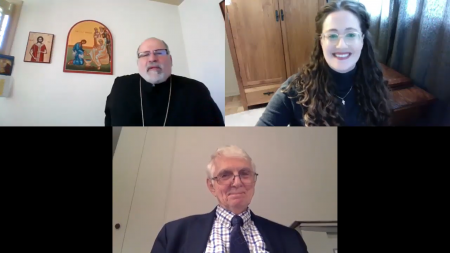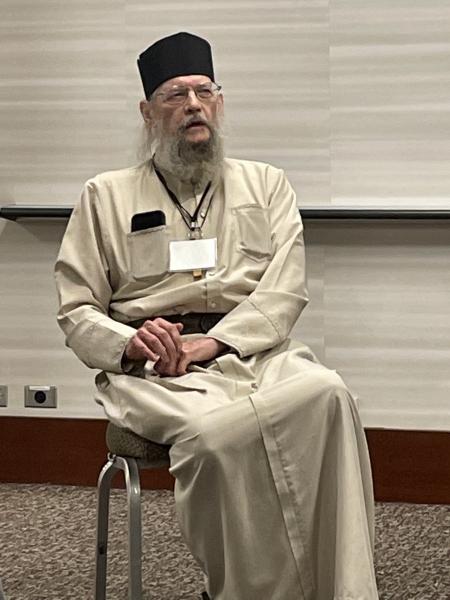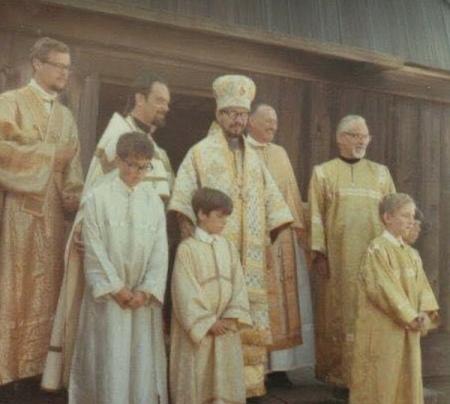Collaborative spirit, practical focus mark this year’s Summer Music Institute
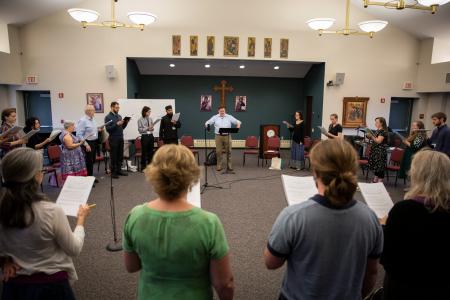
Nearly eighty people from across the United States and Canada—and one from Norway—sang, learned, and worshipped together at this year’s Summer Music Institute, held at St. Vladimir’s Seminary June 14–18. About half of the participants took part in person on campus, with the others joining workshops, lectures, and chapel services online.
“The Summer Music Institute is a wonderful and vibrant expression of true Christian community: learning and teaching, leading and serving, and earnestly working for the beauty of the Liturgy,” said Institute participant Simeon Acker.
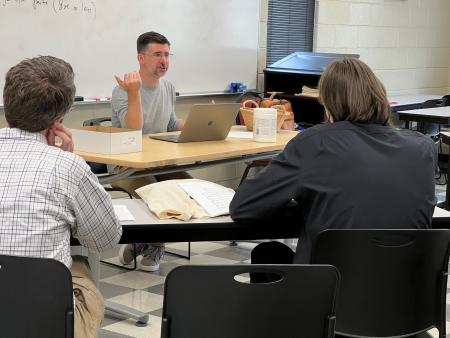
The hybrid event, with its theme of “Music in the Service of Liturgy,” was co-hosted by the Seminary’s Institute of Sacred Arts (ISA) and the International Society for Orthodox Church Music (ISOCM). Additionally, music faculty from St. Tikhon’s Orthodox Theological Seminary—Benedict Sheehan and Talia Maria Sheehan—were also instrumental in putting on this year’s Summer Music Institute.
“The spirit of collaboration contributed immensely to the great joy we all felt during this event,” said ISA Director Dr. Peter Bouteneff. “And significantly, some of the real movers and shakers of Orthodox church music in America over the past decades participated in the Summer Music Institute along with younger musicians in their twenties and thirties.”

This year’s Summer Music Institute accommodated church musicians from both Slavic and Byzantine traditions and brought a practical focus to its participants. Instructors Benedict and Talia Sheehan, John Michael Boyer, and Juliana Woodill provided skills and resources to help the participants choose the best repertoire for their choir and services and maximize their choir’s talents, whatever its size and skill.
“Church musicians have so many new and unique problems. But together we also have so many new and unique skills and strengths,” said Talia Maria Sheehan. “We wanted to share these skills and strengths by making a place for church musicians to learn from each other, across traditions, across generations, and across the world. But that sharing was coupled with hands-on workshops and coaching, so that participants could learn how to use those new skills and strengths! And the effect was both inspiring and encouraging!”
Music Institute participants were also treated to three wonderful keynote lectures—which will be made available to the public at a later date—delivered by ISOCM Chairman Archpriest Ivan Moody, Chairman of the Finnish Society for Byzantine Music Hieromonk Damaskinos Olkinuora, and St. Vladimir’s Seminary Assistant Professor of Liturgical Music Dr. Harrison Russin.
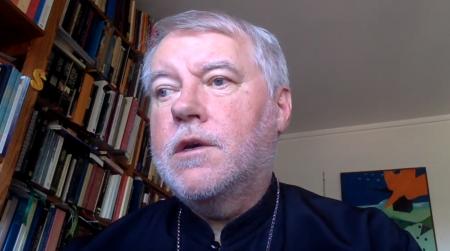
In keeping with the theme of “Music in the Service of Liturgy,” Fr. Ivan discussed the importance of carefully selecting music that is not only appropriate for the skill-level of a choir but also beautiful and engaging for everyone worshipping.
"If...we make decisions to enable our chanters and choir members to sing beautifully and serve the liturgy while continuing to respect traditions, both church-wide and local, we will be genuinely participating in Christ's missionary imperative of baptizing all nations,” said Fr. Ivan, who delivered his keynote lecture remotely from Portugal.

The Summer Music Institute concluded with Divine Liturgy on Saturday, June 18.
Details regarding next year’s event will be announced in the coming months.
"The renewal of the Summer Music Institute shows how vibrant church music is in North America, in the OCA, and at St. Vladimir's Seminary,” said Dr. Russin. “We were happy this year to focus on making music for modern parish realities, and giving students the tools to take back to their communities. The Institute serves as a wonderful meeting space for people to sing together, exchange ideas, and support each other as we engage in singing for liturgy."





